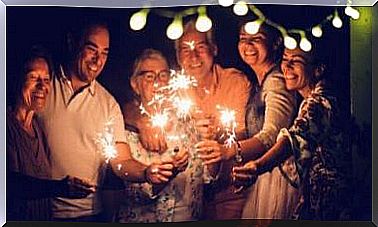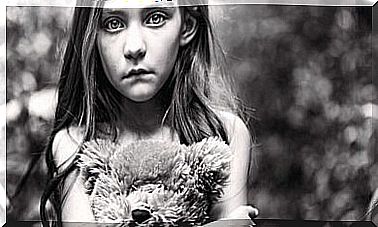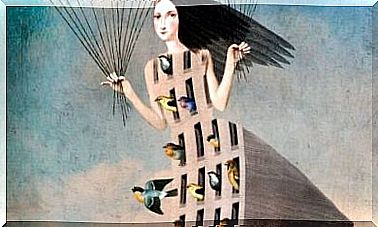Appearance On Social Networks And Reality
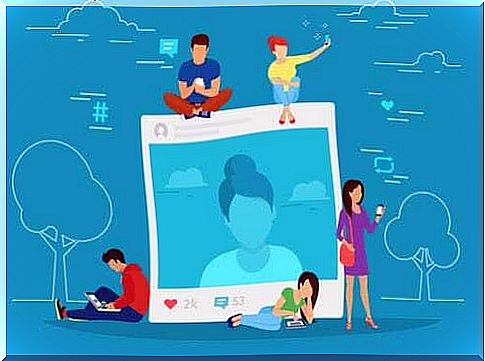
Appearance on social networks has become a real obsession, so much so that we can even talk about a lifestyle. How many times have we taken photos just to post them on Facebook, Instagram or another social network? The cell phone is now part of us. On social networks we tell others about our “fabulous life”, moment by moment, day after day, to let us admire, receive lots of likes and respond to comments.
But what lies behind this relentless search for attention and admiration? Is this the new way to seek fame? Could it be synonymous with low self-esteem? Undoubtedly it is a phenomenon that requires extensive reflection, at least to understand whether or not it hides an emotional deficiency. Social networks have also become a topic of debate on a scientific level.
Social networks and self-esteem
Social networks are very useful tools at work and on a personal level. On the one hand, they bring us closer to our loved ones and allow us to share our experiences with them. We publish a photo of a special moment, write a reflection or share the song that we like or that generates debate.
On the other hand, they can also be used for advertising purposes by small and large companies, freelancers and emerging projects.
The problem arises when making appearances on social media the center of one’s life. We don’t just take pictures, we go specifically to a place to take a selfie. We dress in a certain way just to show it to the world.
We perform precise actions so that others see what we do. Some people have even lost their lives trying to take the best selfie.
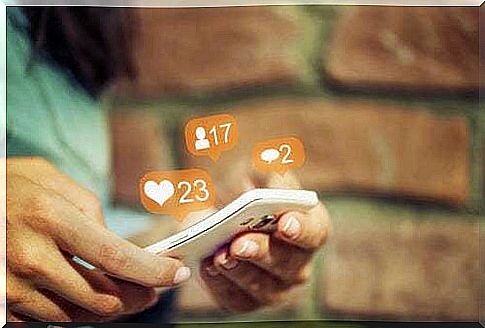
What leads us to consider social networks a lifestyle? To answer this question, a reflection on the concept of self-esteem is necessary. Self-esteem, according to Massó (2013), is related to the evaluation we make of ourselves and can be divided into two components:
- The concept of self, or rather the characteristics of our identity, the qualities and traits of our way of being.
- Self-love, therefore the appreciation and affection we feel towards ourselves, our interests, our ideas, our values and ways of thinking.
Low self-esteem affects how we relate to others. The study conducted by López-Villaseñor (2014) ensures that people with low self-esteem experience social relationships with anxiety and fear of rejection.
This is a key point in understanding the obsessive use of social networks. Low self-esteem and fear of rejection translate, in many cases, into an urgent need to seek acceptance from others.
Appearance on social networks to fill an inner void
This desire to appear different is aimed at filling an inner emptiness. When we feel incomplete and frustrated at the same time, we begin to seek happiness outside of ourselves.
In the case of social networks, we will look for it in the form of attention and recognition, then we will create a false happiness based on the opinions of others.
A source of momentary happiness, because the desire to please everyone in many cases ends up depriving the person of his identity. When we are criticized or not appreciated, our self-esteem will suffer even more and our image will be damaged.
Another factor to consider is the volatility of the opinion of others: what we like today, tomorrow could arouse our disinterest. According to this mechanism, one day we may have many followers, but the next day they may have halved.
This causes us suffering because we have taken our happiness and entrusted it to strangers. Instead of taking care of our joy, we gave it away. In reality, our happiness depends solely and exclusively on us.
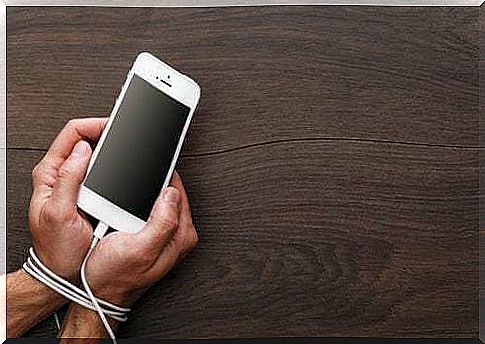
A reflection to conclude
Not all that glitters is gold. Not everything we see on the net is a reflection of reality, as people only show what they want to show. Appearance on social networks is absolutely relative.
Nobody posts pictures of when they cry or feel bad. We mostly see trips, parties or events that have a certain relevance for each of us. “ Look what I won, where I went or how much I enjoyed”… Let’s not fall into the mistake of thinking that others live 24 hours a day “in style”.
Phrases such as “look how my friend is having fun”, “look how much my friend travels” are heard all too often. Yet, if we were witnesses of the daily life of these people, we would surely discover that it is not all that different from ours. Scanned by moments of sadness and joy.
This tells us that we shouldn’t believe everything we see. And if other people are ever really happy, we just have to rejoice for them.
In conclusion, our happiness is in our hands, therefore, we do not depend on the opinion and admiration of others. If, on the other hand, we want to take them as role models, we certainly don’t have to go to social media, a world where negative emotions do not exist and, therefore, there is little or nothing real.

